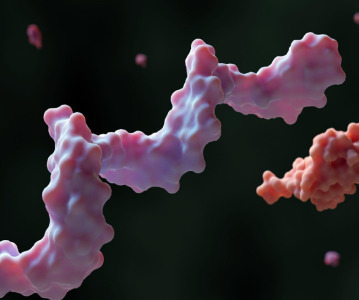Scientists test 5,000 combinations of 100 existing cancer drugs to find more effective treatments
Scientists in the United States have tested all possible pairings of the 100 cancer drugs approved for use in patients in order to discover whether there are any combinations not tried previously that are effective in certain cancers.
Scientists in the United States have tested all possible pairings of the 100 cancer drugs approved for use in patients in order to discover whether there are any combinations not tried previously that are effective in certain cancers.
Dr Susan Holbeck (PhD), a biologist in the Division of Cancer Treatment and Diagnosis at the National Cancer Institute (USA), and her colleagues have completed testing the 100 drugs, with 300,000 experiments to test the 5000 possible drug combinations in a panel of 60 cell lines developed by the National Cancer Institute (NCI-60 panel). "The goal is to identify novel drug combinations that are more active than the single agents alone. Since these are all approved agents, there is the potential to rapidly translate these combinations into the clinic," she said.
Cancer treatments often use a combination of drugs, as a single drug rarely produces a long-lasting response due to the cancer becoming drug resistant. Some drug combinations have evolved over time by incorporating new agents into existing standards of care, while many newer treatments try to select combinations of drugs that target particular pathways that are known to be involved in the development of the cancer. However, some combinations can be so toxic that they have to be used at lower doses that may not be effective against the cancer.
"In addition, there are a large number of drug combinations that have never been used together in people, and for which there is no experimental information on whether there might a benefit to the combination," said Dr Holbeck. "We decided that it would be a feasible project to generate experimental data for all 5000 possible combinations of pairs, and that we would make these data available to all to enable additional experiments in support of taking new combinations to clinical trials.
"In order to provide a resource for understanding the efficacy of drug combinations, we have undertaken a systematic screening of most small molecule oncology drugs approved in the US, each in combination with all the others. This was done using a panel of human tumour cell lines derived from nine different types of cancer.
"We chose to test the combinations in the NCI-60 panel - a group of diverse cell lines that our programme has used for many years to screen potential new drugs - because we have a lot of information about these cell lines. For instance, mutations, gene expression, microRNA expression and so on have all been characterised, and this enables us to analyse the cell lines that benefit from a particular combination and potentially identify markers in those cell lines that might also be used as biomarkers in patients."
The researchers have found that some combinations have shown benefit in many cell lines, while others are active in just a few cell lines. When some of the new combinations were tested in human tumours grafted into mice, they were found to be more effective than the most active doses of single drugs.
"These results are promising but we need to repeat and confirm them," said Dr Holbeck. "Our goal is to rapidly translate several novel combinations into clinical trials. There will be many more leads than we can possibly follow through on. Once these data are published, the dataset, and tools to analyse it, will be made available on our web site for all to utilise as they wish.
"To our knowledge this is the first systematic characterisation of approved drugs in a large number of cancer cell lines. We are not making any assumptions about which combinations will give improved activity. The use of many diverse cancer cell lines allows data mining for markers of response that would not be possible with a small set of cell lines.
"Many groups are focusing on 'rational' combinations, i.e. making scientific inferences about which pathways it might make sense to block simultaneously with different drugs. We took a step back, and took an approach that tests all possible drug pairs. This allowed us to test not only the rational combinations, but also to explore drug pairs that otherwise would likely never be tested together."
Professor Stefan Sleijfer, the scientific chair of the EORTC-NCI-AACR Symposium, from Erasmus University Medical Centre (The Netherlands), commented: "This study is interesting because of the use of combinations of drugs already approved and on the market, which were tested in cell lines that have been well characterised in terms of genetic profiles. If confirmed, this study will form a basis for future clinical trials on such combinations in well-defined patient groups."
Related News
-
News Google-backed start-up raises US$600 million to support AI drug discovery and design
London-based Isomorphic Labs, an AI-driven drug design and development start-up backed by Google’s AI research lab DeepMind, has raised US$600 million in its first external funding round by Thrive Capital. The funding will provide further power t... -
News AstraZeneca to invest US$2.5 billion in Beijing R&D centre
Amid investigations of former AstraZeneca China head Leon Wang in 2024, AstraZeneca have outlined plans to establish its sixth global strategic R&D centre in China. Their aim is to further advance life sciences in China with major research and manufact... -
News Experimental drug for managing aortic valve stenosis shows promise
The new small molecule drug ataciguat is garnering attention for its potential to manage aortic valve stenosis, which may prevent the need for surgery and significantly improve patient experience. -
News How GLP-1 agonists are reshaping drug delivery innovations
GLP-1 agonist drug products like Ozempic, Wegovy, and Mounjaro have taken the healthcare industry by storm in recent years. Originally conceived as treatment for Type 2 diabetes, the weight-loss effects of these products have taken on unprecedented int... -
News A Day in the Life of a Start-Up Founder and CEO
At CPHI we work to support Start-Up companies in the pharmaceutical industry and recognise the expertise and innovative angles they bring to the field. Through our Start-Up Programme we have gotten to know some of these leaders, and in this Day in the ... -
News Biopharmaceutical manufacturing boost part of new UK government budget
In their national budget announced by the UK Labour Party, biopharmaceutical production and manufacturing are set to receive a significant boost in capital grants through the Life Sciences Innovative Manufacturing Fund (LSIMF). -
News CPHI Podcast Series: The power of proteins in antibody drug development
In the latest episode of the CPHI Podcast Series, Lucy Chard is joined by Thomas Cornell from Abzena to discuss protein engineering for drug design and development. -
News Amgen sues Samsung biologics unit over biosimilar for bone disease
Samsung Bioepis, the biologics unit of Samsung, has been issued a lawsuit brought forth by Amgen over proposed biosimilars of Amgen’s bone drugs Prolia and Xgeva.
Position your company at the heart of the global Pharma industry with a CPHI Online membership
-
Your products and solutions visible to thousands of visitors within the largest Pharma marketplace
-
Generate high-quality, engaged leads for your business, all year round
-
Promote your business as the industry’s thought-leader by hosting your reports, brochures and videos within your profile
-
Your company’s profile boosted at all participating CPHI events
-
An easy-to-use platform with a detailed dashboard showing your leads and performance







.png)